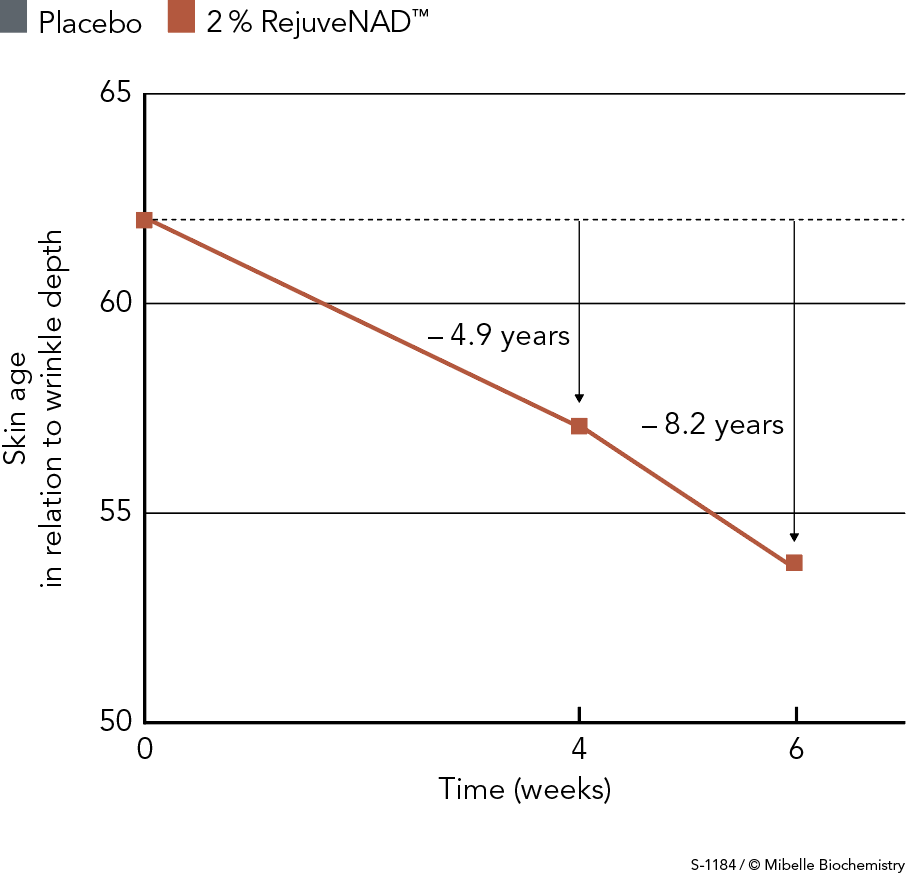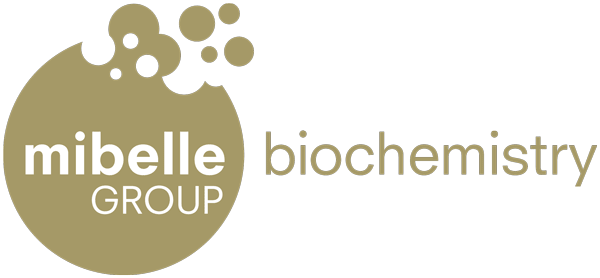The cosmetics industry is increasingly prioritizing the trending concept of longevity to fulfil the everlasting demand for vital, youthful-looking skin as well as skin rejuvenation. This focus on skin longevity is in line with the historical pursuit of a longer lifespan, which has driven advances in aging research. In 2013, researchers have introduced the classic "hallmarks of aging" to outline the fundamental biological processes underlying aging. Growing evidence underlines that the metabolite nicotinamide adenine dinucleotide (NAD+) plays a significant role in all hallmarks of aging. In recent years NAD+ has gained substantial recognition, especially in the food supplement sector, as studies have shown a strong correlation between declining NAD+ levels and accelerated aging. NAD+ is a vital coenzyme in energy metabolism, particularly because it is essential to produce ATP. Moreover, NAD+ serves as a cofactor for hundreds of NAD+-dependent enzymes involved in diverse cellular processes which hold substantial relevance for all cell types, including skin cells.
Incorporating the metabolite NAD+ into cosmetics has been challenging due to its instability in formulations and limited penetration into skin cells. An innovative solution to this issue is RejuveNAD™, an active ingredient derived from organic sunflower sprouts that are cultivated sustainably by indoor farming. RejuveNAD™ naturally boosts endogenous NAD+ levels by enhancing the expression of the rate-limiting NAD+ synthesis enzyme nicotinamide phosphoribosyltransferase (NAMPT). Further studies have demonstrated that RejuveNAD™ tackles at least five out of the nine classic aging hallmarks, namely genomic instability, epigenetic alterations, mitochondrial dysfunction, loss of proteostasis and cellular senescence.
The skin is exposed to external and internal stress that can cause DNA damage, a driver of skin aging. The efficiency of the skin to repair its DNA reduces with age. To simulate skin aging, DNA damage was induced in keratinocytes. Treatment with sunflower sprout extract reduced the aging stress-induced elevation of the DNA damage and epigenetic markers that lead to the development of senescent cells. Moreover, the rejuvenation potential of RejuveNAD™ was assessed in skin explants that were exposed to UV and subsequently treated. RejuveNAD™ enhanced mitochondrial function and proteostasis by the reduction of mitochondrial protein carbonylation, a marker of protein damage. The levels of the longevity marker sirtuin 1 as well as collagen XVII were significantly increased in the UV-treated explants, representing a reverse aging effect of RejuveNAD™. Furthermore, RejuveNAD™ counteracts the impacts of photoaging by increasing the collagen density.

Figure: Improved skin age after application of 2% RejuveNAD™
In a placebo-controlled clinical study, the use of a cream containing 2% RejuveNAD™ applied twice daily for 42 days by 22 women aged 52 to 65 resulted in improvement in facial skin aging signs. RejuveNAD™ increased skin smoothness and had a significant lifting effect in the jowl line region. Before-and-after pictures of a volunteer demonstrated effective rejuvenation, visible by a reduction in wrinkles and folds, leading to facial reshaping. The application of RejuveNAD™ reduced crow’s feet wrinkle depth by 9.2% and 15.3% after 28 and 42 days, respectively. Moreover, a comparison with a reference dataset comprising over 300 women aged 30 to 65 years showed that RejuveNAD™ made the skin appear 8.2 years younger after 42 days. Overall, the findings demonstrate that RejuveNAD™ promotes skin longevity, resulting in visible rejuvenation of the skin.






